WHAT IS CHARCOT-MARIE-TOOTH DISEASE?
Charcot-Marie-Tooth disease is a group of inherited disorders that result in nerve damage. This damage is most common in the arms and legs (peripheral nerves). Charcot-Marie-Tooth disease is also known as hereditary motor and sensory neuropathy.
The Charcot-Marie-Tooth disease leads to smaller, weaker muscles. You might also experience loss of sensation and muscle contractions, and trouble walking. Foot deformities like hammertoes and high arches also are common. Symptoms generally start in the feet and legs, but they might ultimately affect your hands and arms.
Symptoms of Charcot-Marie-Tooth disease generally appear in adolescence or early adulthood, but might also develop in midlife.
SYMPTOMS
Signs and symptoms of Charcot-Marie-Tooth disease might include:
- Weakness in your legs, ankles, and feet
- Reduced muscle mass in your legs and feet
- High foot arches
- Curled toes (hammertoes)
- Decreased ability to run
- Trouble lifting your foot at the ankle (footdrop)
- Awkward or higher than normal step (gait)
- Frequent tripping or falling
- Reduced sensation or a loss of feeling in your legs and feet
As Charcot-Marie-Tooth disease advances, symptoms might spread from the feet and legs to the hands and arms. The severity of symptoms could differ greatly from person to person, even among family members.
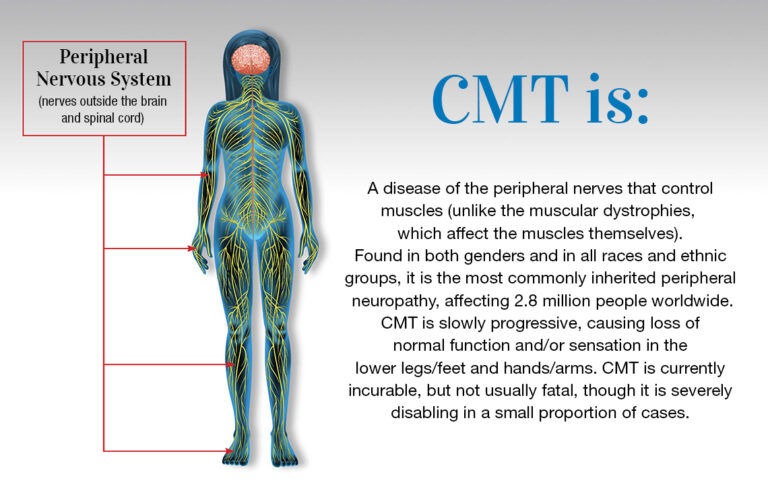
CAUSES
Charcot-Marie-Tooth disease is a hereditary, genetic condition. It happens when there are mutations in the genes that impact the nerves in your feet, legs, hands, and arms.
At times, these mutations damage the nerves. Other mutations damage the protective coating that encircles the nerve (myelin sheath). Both cause weaker signals to travel between your limbs and the brain.
RISK FACTORS
Charcot-Marie-Tooth disease is inherited, so you are at higher risk of developing the disorder if anyone in your immediate family has the disease.
Other causes of neuropathies, like diabetes, might cause symptoms identical to Charcot-Marie-Tooth disease. These other conditions could also contribute to the symptoms of Charcot-Marie-Tooth disease becoming worse. Medications like the chemotherapy drugs vincristine (Marqibo), paclitaxel (Abraxane), and others could make symptoms worse. Make sure to let your doctor know about all of the medications you are taking.
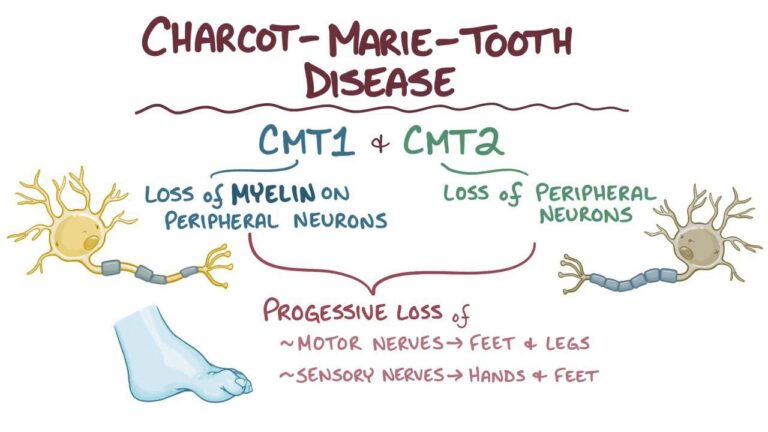
COMPLICATIONS
Complications of Charcot-Marie-Tooth disease differ in severity from person to person. Foot abnormalities and difficulty walking are generally the most severe problems. Muscles might get weaker, and you might injure areas of the body that experience decreased sensation.
Sometimes the muscles in your feet might not receive your brain’s signal to contract, so you are more likely to trip and fall. And your brain might not receive pain messages from your feet, so if you have rubbed a blister on your toe, for instance, it might get infected without your realizing it.
You might also experience trouble breathing, swallowing, or speaking if the muscles that control these functions are affected by Charcot-Marie-Tooth disease.
DIAGNOSIS
- During the physical examination, your doctor might check for:
- Signs of muscle weakness in your arms, legs, hands, and feet
- Decreased muscle mass in your lower legs, resulting in an inverted champagne bottle appearance
- Reduced reflexes
- Sensory loss in your feet and hands
- Foot deformities, like high arches or hammertoes
- Other orthopedic problems, like mild scoliosis or hip dysplasia
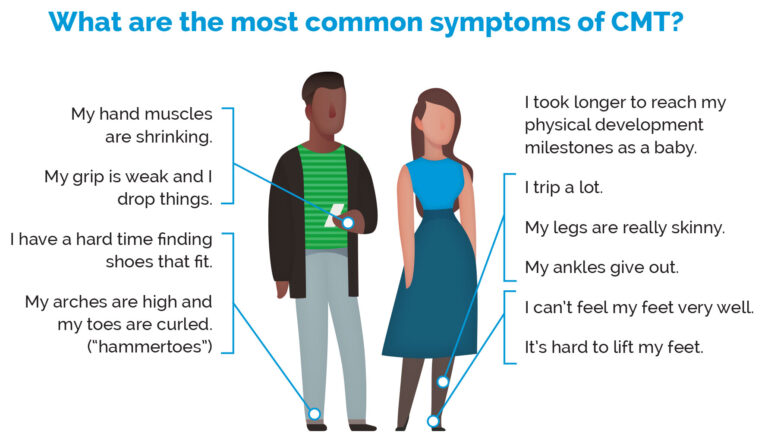
Your doctor might also recommend the following tests, which could help provide information about the extent of your nerve damage and what might be causing it.
Nerve conduction studies – These tests measure the strength and speed of electrical signals sent through your nerves. The electrodes on the skin give small electric shocks to stimulate the nerve. Delayed or weak responses might suggest a nerve disorder like Charcot-Marie-Tooth disease.
Electromyography (EMG) – A slim needle electrode is inserted through your skin into the muscle. Electrical activity is measured as you relax and as you slowly tighten the muscle. Your doctor might be able to determine the distribution of the disease by testing various muscles.
Nerve biopsy – A small part of the peripheral nerve is taken from your calf through an incision in your skin. Lab analysis of the nerve distinguishes Charcot-Marie-Tooth disease from other nerve disorders.
Genetic testing – These tests, which could detect the most common genetic defects known to cause Charcot-Marie-Tooth disease, are done with a blood sample. Genetic testing might give people with the disorder more information for family planning. It could also rule out other neuropathies. Recent developments in genetic testing have made it more affordable and comprehensive. Your doctor might refer you to a genetic counselor before testing so you could best understand the pros and cons of testing.
TREATMENT
There is no cure for Charcot-Marie-Tooth disease. But the disease generally progresses gradually, and it does not affect the expected life span.
There are some treatments to help you handle Charcot-Marie-Tooth disease.
Medications
Charcot-Marie-Tooth disease might sometimes cause pain because of muscle cramps or nerve damage. If pain is a problem for you, prescription pain medication might help control your pain.
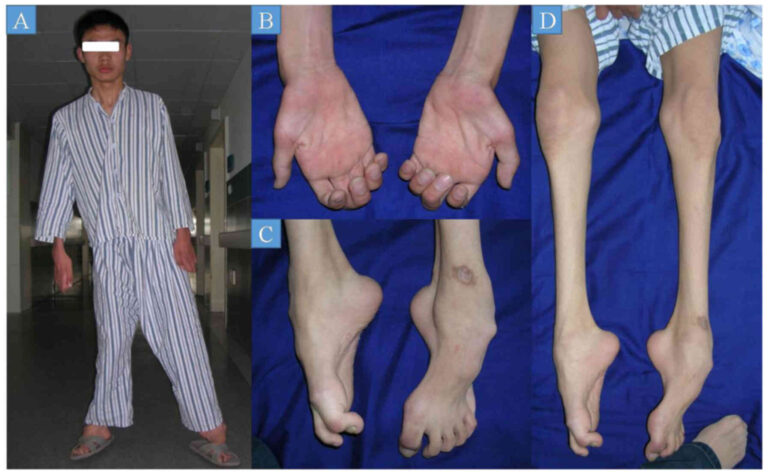
Therapy
- Physical therapy – Physical therapy could help strengthen and stretch your muscles to prevent muscle tightening and loss. A program generally includes low-impact exercises and stretching techniques guided by a trained physical therapist and approved by your doctor. Started early and followed regularly, physical therapy could help prevent disability.
- Occupational therapy – Weakness in the arms and hands could cause difficulty with gripping and finger movements, like fastening buttons or writing. Occupational therapy could help through the use of assistive devices, like special rubber grips on doorknobs, or clothing with snaps instead of buttons.
- Orthopedic devices – Many people with Charcot-Marie-Tooth disease need the help of specific orthopedic devices to maintain everyday mobility and to prevent injury. Leg and ankle braces or splints could provide stability while walking and climbing stairs.
Consider boots or high-top shoes for extra ankle support. Custom-made shoes or shoe inserts might improve your gait. Consider thumb splints if you have hand weakness and trouble with gripping and holding things.
Surgery
If foot deformities are severe, corrective foot surgery might help alleviate pain and improve your ability to walk. Surgery cannot improve weakness or loss of sensation.
Potential future treatments
Researchers are investigating a number of potential therapies that might one day treat Charcot-Marie-Tooth disease. Possible therapies include medications, gene therapy, and in vitro procedures that might help prevent the passing of the disease to future generations.
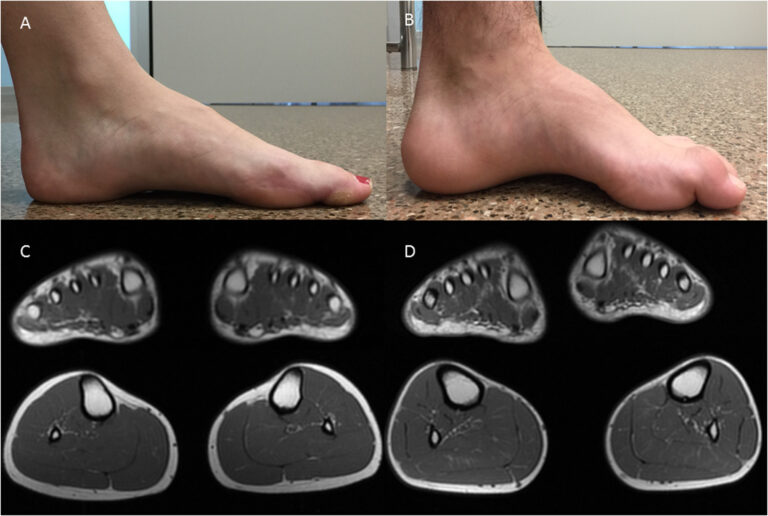
If you or anyone you know is suffering from Charcot Marie tooth disease, our expert providers at Specialty Care Clinics will take care of your health and help you recover.
Call 469-545-9983 to book a telehealth appointment for an at-home check-up.
